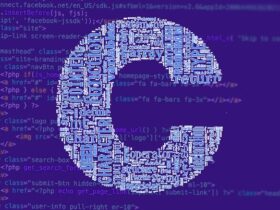Functional programming languages offer numerous benefits, from writing cleaner code to future-proofing your skill set. Whether you’re experienced or just starting out, adding a functional language to your toolkit could be a game-changer in your coding career.
Write Cleaner, More Maintainable Code
Functional programming can help you write cleaner, more maintainable code. This approach reduces complexity by using immutable data and pure functions.
Your code will have fewer side effects, making it easier to understand and test. Functions become predictable units that convert inputs to outputs without changing the program’s state.
When you use functional programming, you create more modular and reusable components. This modularity helps you isolate issues to specific functions, simplifying the debugging process.
You’ll find it easier to reason about your code because each function has a clear purpose and predictable behavior.
To get started with functional programming, focus on writing pure functions. These functions always produce the same output for a given input and don’t modify anything outside their scope.
Use immutable data structures to prevent accidental changes to your data. This practice helps avoid bugs caused by unexpected state changes.
Another key concept is higher-order functions. These are functions that can take other functions as arguments or return them as results.
They allow you to create more flexible and reusable code by separating behavior from implementation details.
As you adopt functional programming techniques, you’ll notice your code becoming more concise and easier to maintain. You’ll spend less time tracking down bugs and more time adding new features.
While it may take some practice to get used to this paradigm, the long-term benefits in code quality and maintainability are well worth the effort.
Embrace Concurrency Without the Headaches

Functional programming makes concurrent programming easier and less prone to errors.
It uses data that doesn’t change and functions that always give the same output for the same input. This approach prevents common problems like race conditions and unexpected side effects.
You’ll work with functions that can take other functions as input or return them as output. This feature allows you to break down complex operations into smaller, reusable parts. These parts can then be easily run in parallel, improving performance.
Many functional programming languages come with built-in tools for handling tasks that don’t need to be done in order.
These tools make it simpler to create systems that can do many things at once without sacrificing speed or the ability to handle more work.
Become a Better Problem Solver
Learning a functional programming language can make you a better problem solver. This approach to coding teaches you to think differently about complex issues.
You’ll learn to break problems into smaller, reusable parts. This skill is helpful in many areas of programming and life.
Functional programming focuses on data transformations. You’ll start to see problems as a series of steps that change data from one form to another. This way of thinking can help you tackle all kinds of challenges, not just in coding.
The emphasis on immutability in functional programming is another useful concept. It means that once you create something, you don’t change it. Instead, you make a new version with the changes. This approach can lead to cleaner, easier-to-understand code.
Functional languages also use higher-order functions and recursion. Higher-order functions are functions that can take other functions as inputs or return them as outputs.
Recursion is when a function calls itself to solve a problem. These tools give you powerful ways to solve complex problems.
The skills you gain from functional programming can improve your work in any programming language.
You’ll write more elegant code and find smarter solutions to tough problems. Even if you don’t use functional languages every day, the thinking patterns you learn will stay with you.
Level Up Your Debugging Skills

Functional programming languages offer powerful tools for debugging code, helping you find and fix issues more effectively.
These languages use immutable data and pure functions, making it easier to isolate problems and predict how your code will behave.
When debugging in functional languages, you’ll work with immutable data. This means once you create a value, it can’t be changed.
This feature eliminates side effects, which are unexpected changes in your program’s state. Without side effects, you can focus on the specific part of your code that’s causing trouble.
Pure functions are another key aspect of functional programming. These functions always produce the same output for a given input, regardless of when or how many times you call them. This predictability makes it easier to test your code and spot inconsistencies.
Functional languages also use a declarative style. Instead of spelling out each step of a process, you describe the result you want. This approach makes your code’s intent clearer, helping you and others understand what it’s supposed to do.
These characteristics work together to help you find bugs faster. When you know exactly what each part of your code should do, it’s easier to spot when something goes wrong.
You can focus on the specific function or data that’s causing problems without worrying about unexpected changes elsewhere in your program.
To make the most of these debugging advantages, start by breaking your code into small, pure functions. Test each function separately to ensure it works as expected.
When you encounter a bug, you can then focus on the specific function or data structure involved, knowing that the problem is contained within that area.
Future-Proof Your Skill Set
Mastering a functional programming language enhances your debugging skills and strengthens your long-term career prospects in the ever-changing tech industry. This skill set prepares you for future challenges and opportunities in several ways.
Functional programming languages align well with emerging technological paradigms. As new approaches to software development evolve, your knowledge of functional concepts will help you adapt quickly. You’ll be able to grasp and implement cutting-edge techniques more easily, keeping you ahead in your field.
Problem-solving becomes more versatile when you understand functional programming.
You’ll develop a different way of thinking about code and data, allowing you to tackle complex issues from multiple angles. This flexibility is invaluable when facing unique challenges in your work.
Complex systems become clearer when viewed through a functional lens. The principles of immutability and pure functions make it easier to understand and manage large-scale applications.
You’ll be better equipped to design and maintain robust software architectures, a crucial skill as systems grow increasingly intricate.
Artificial intelligence and machine learning advancements often rely on functional programming concepts. By mastering these skills now, you’ll be well-positioned to work on cutting-edge projects in these rapidly growing fields.
Your functional programming knowledge will give you a solid foundation for understanding and implementing AI algorithms.
To future-proof your skill set, start by learning a popular functional language like Haskell, Scala, or F#. Practice writing small programs and gradually tackle more complex projects.
Engage with online communities and contribute to open-source projects to gain real-world experience. Attend workshops or conferences focused on functional programming to stay updated on the latest trends and techniques.
Join a Thriving Community

Functional programming languages offer a thriving community of developers, researchers, and enthusiasts. These communities provide valuable resources, knowledge sharing, and collaboration opportunities.
The ecosystem surrounding functional programming enhances your learning experience and career prospects.
Community forums for functional programming tend to be more specialized compared to their object-oriented counterparts. This specialization often leads to more focused discussions and in-depth problem-solving.
Conferences in the functional programming world are typically smaller and more focused, allowing for deeper exploration of specific topics and techniques.
Libraries in functional programming languages are well-curated, emphasizing quality over quantity. This curation helps developers find reliable and efficient tools for their projects.
The job market for functional programming skills is growing, creating a niche for developers with expertise in this paradigm. Many companies are now seeking functional programmers to tackle complex problems and build robust systems.
Academic interest in functional programming remains strong, with ongoing research into new language features and applications.
This academic focus keeps the field at the cutting edge of computer science, offering opportunities for developers to work with innovative concepts and techniques.
When you join a functional programming community, you’ll find resources tailored to your learning needs. Online forums, local meetups, and coding workshops provide platforms to ask questions, share knowledge, and collaborate on projects.
These interactions can significantly accelerate your learning process and help you stay updated on the latest developments in the field.
The supportive nature of functional programming communities often leads to mentorship opportunities.
Experienced developers frequently offer guidance to newcomers, helping them navigate the learning curve and develop their skills. This mentorship can be invaluable for your professional growth and can open doors to new career opportunities.
Have Fun and Challenge Yourself
Learning a functional programming language offers both mental challenge and enjoyment. It pushes you to think differently about solving problems.
You’ll need to embrace new concepts like immutability, where data doesn’t change once created. This approach helps prevent bugs and makes code easier to understand.
Higher-order functions are another key concept. These are functions that can take other functions as arguments or return them as results. They allow for more flexible and reusable code.
You’ll also learn to use recursion effectively. This technique involves a function calling itself to solve a problem, often leading to elegant solutions for complex tasks.
Lazy evaluation is another important feature in many functional languages. It means that expressions are only evaluated when their results are needed. This can improve performance and allow for working with infinite data structures.
As you learn these concepts, you’ll develop new ways of thinking about programming. You’ll find yourself writing more concise and powerful code.
This experience will enhance your overall programming skills, not just in functional languages. It will give you a broader perspective on software development and problem-solving.
The satisfaction of crafting elegant solutions to complex problems is a rewarding aspect of functional programming.
You’ll learn to break down big problems into smaller, manageable parts. This skill is valuable in all areas of programming and problem-solving in general.


















